Kalbajar 1993–2025: How promises shaped historic victory, restored justice Visionary triumph
The year was 1996. At a meeting with residents of the Kalbajar district—who had been forced to flee their homes following the occupation of the district by Armenian armed forces—National Leader Heydar Aliyev acknowledged the difficult circumstances faced by displaced Azerbaijani citizens. He stressed that "every possible effort is being made" to ease their suffering.
Heydar Aliyev at the time stated: “We are striving to restore the territory of independent Azerbaijan. This is a just and rightful cause, and we will achieve it.”
The national leader has also firmly declared: “Even if it is not possible to liberate Kalbajar and other territories through peaceful means, we must be ready to reclaim our lands at any cost. I am firmly committed to this path, and I will not stray from it.”
He then expressed confidence that Kalbajar “will return to its former beautiful state and, in the future, become even more magnificent.”
Remarkable, isn’t it? Some might call it visionary. But perhaps what truly lay behind Heydar Aliyev’s words was a profound faith in his people — a belief that they were capable of restoring historical justice.
But first, let us recall that the Kalbajar district was occupied by Armenia on April 2, 1993, after prolonged fighting. A total of 511 civilians and 55 servicemen lost their lives, while 320 people were taken prisoner or went missing. As a result of ethnic cleansing, 77,000 local residents were forced to flee their homes and became internally displaced persons.
The loss of the Kalbajar district was a miscalculation made by then-President Elchibey and his inner circle, who did not believe that the Armenians would dare to seize the area. As a result, the Ministry of Defence made poor decisions regarding the district’s defence. All of this led to the inevitable capture of Kalbajar by enemy forces.
Overall, it can be stated with confidence that the occupation of the cities of Shusha and Lachin in May 1992, which preceded the fall of Kalbajar, became possible as a result of the betrayal by the Popular Front–Musavat tandem, which at the time was seeking to come to power.
Following Armenia’s capitulation in the 44-day war and the signing of the Trilateral Statement on November 10, the Aghdam district (on November 20), as well as the Kalbajar and Lachin districts (on December 1), were returned to Azerbaijan without a single shot being fired.
As of today, Azerbaijan’s territorial integrity has been fully restored. The country’s sovereignty extends over all its lands. In 2021, President of Azerbaijan Ilham Aliyev raised the national flag in Kalbajar. On that occasion, the head of state announced that “the process of restoration and reconstruction” of the city would begin.
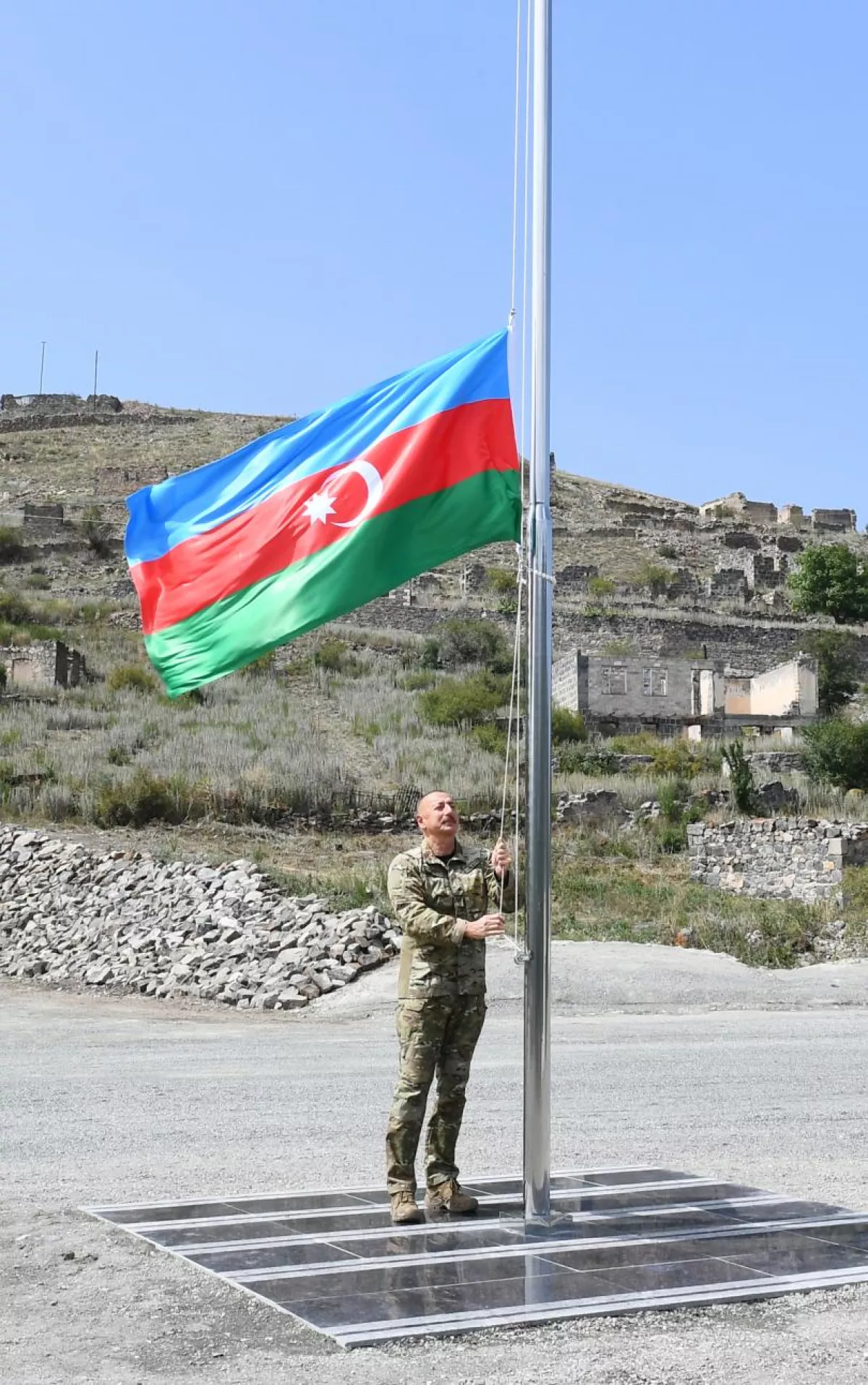
What was said was done.
The year is 2025, August 21. President Ilham Aliyev meets with the residents of Kalbajar, hands over the keys to their apartments, and highlights the fact that the city is becoming one of the most beautiful and picturesque places in the world.
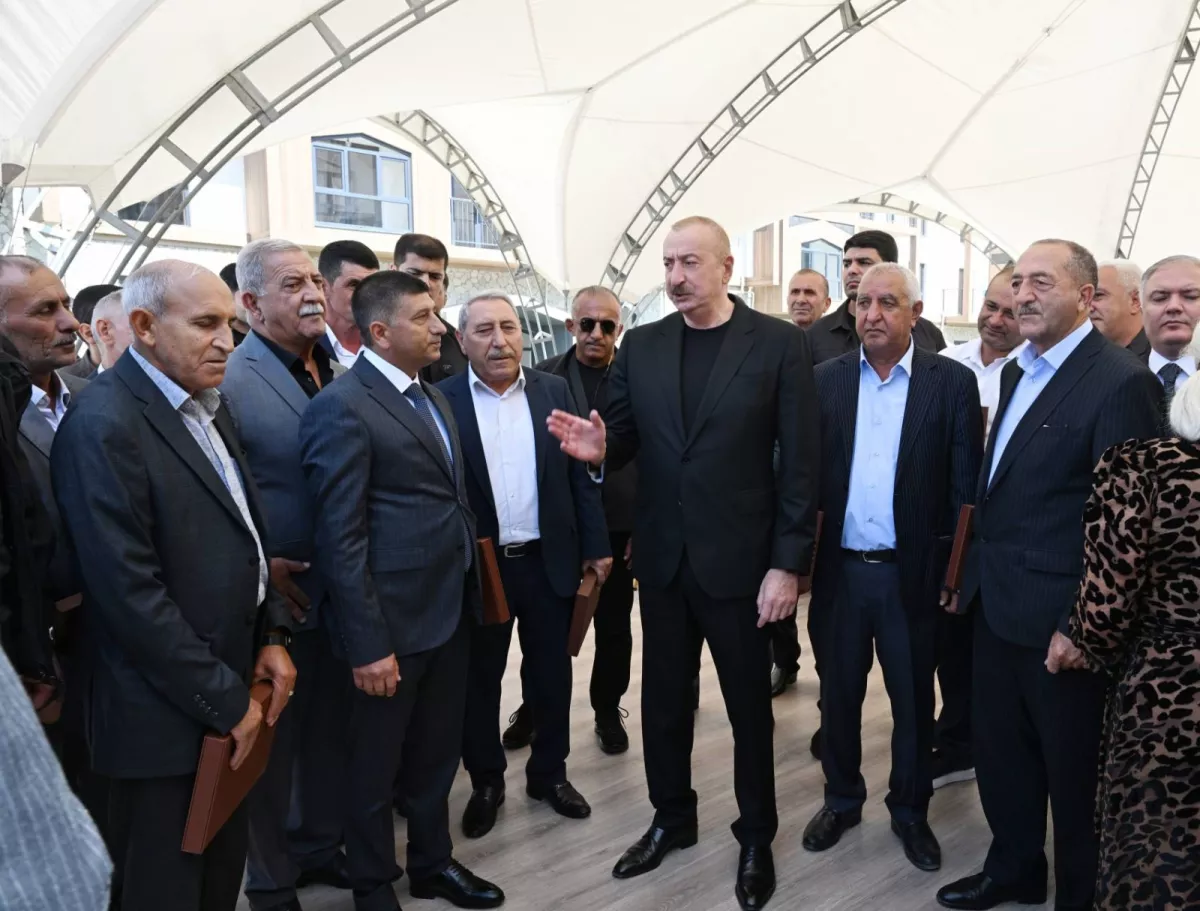
How can one not recall the promise made to the people of Kalbajar by the national leader nearly thirty years ago?
In his speech, President Ilham Aliyev once again reminded everyone of the important lessons from recent history. He emphasised that Armenia never intended to return even an inch of occupied land, especially since the co-chairs of the ill-fated Minsk Group—France, Russia, and the United States—worked to legitimise the Armenian occupation. This, he explained, was why the conflict couldn’t be resolved peacefully.
However, the 44 intense days of the 2020 Patriotic War, led by the united and resilient “Iron Fist” of the Azerbaijani people—a diverse and multi-confessional power—forced Armenia to sign an act of surrender. Three years later, the separatist junta followed suit and signed a similar agreement.
This brings to mind what Heydar Aliyev said back in 1996 about the paths—both peaceful and military—to restoring Azerbaijan’s territorial integrity.
Today, the normalisation of Armenian-Azerbaijani relations is essentially complete, and the long-disliked Minsk Group is nearing its end. Finland, as the current OSCE chair, has already begun taking necessary steps following a joint request from Azerbaijan and Armenia.
The initialing of the peace agreement with Armenia, crafted by Baku, has effectively brought the conflict to a close. Moreover, a land corridor connecting mainland Azerbaijan with Nakhchivan has been established. This route is now expanding beyond the region, developing into a major international transport corridor.
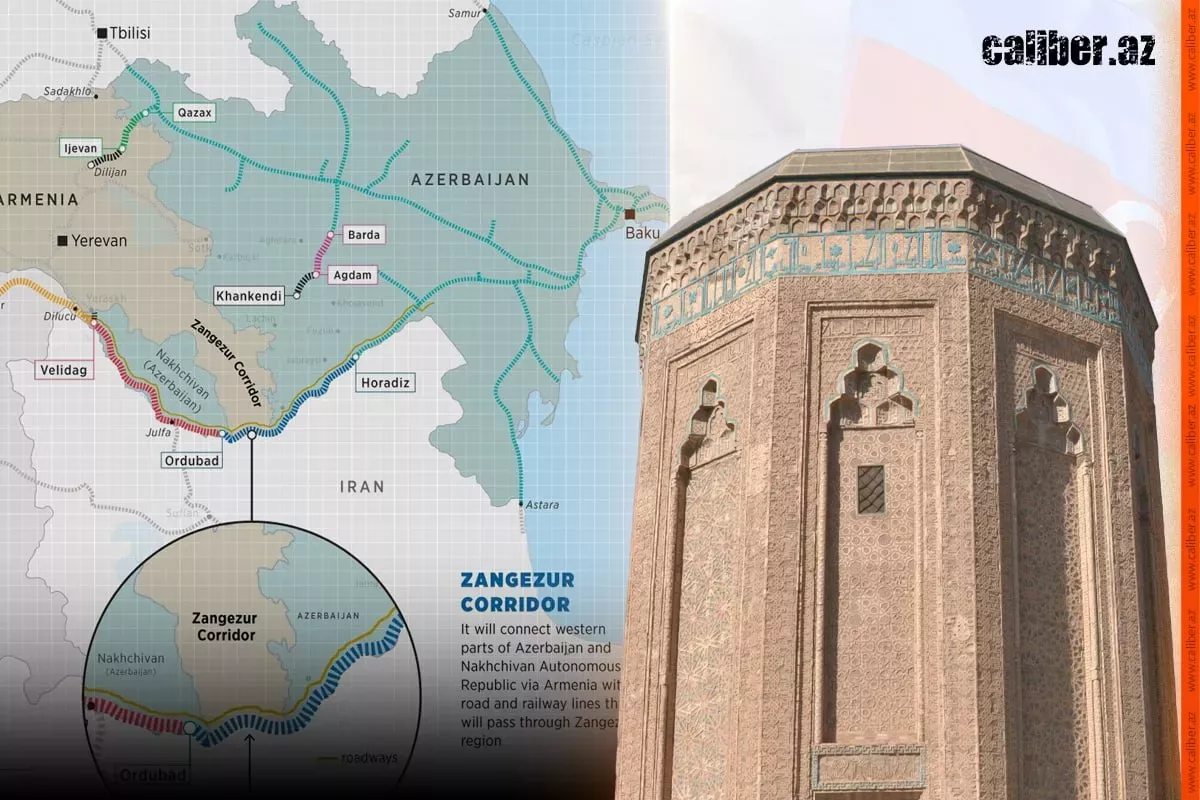
In this light, the word “uniqueness” truly stands out. Many countries around the world have more favourable geographic locations and far greater natural resources than Azerbaijan. However, Azerbaijan’s experience has proven one thing clearly: success depends on how well a country manages its resources, using them wisely for the benefit of its people and nation.
This approach paved the way for Azerbaijan to achieve economic independence, which naturally led to political independence. It has also empowered Baku to confidently defend its national interests on every international stage.
That is why, in his speech, the head of state highlighted the greatness of the Azerbaijani people, demonstrated on the highest international level. As a result, despite all the anti-Azerbaijani insinuations from biased external forces, the realities created by Baku in the South Caucasus are now recognised worldwide.
The final blow to such schemes was dealt by the documents signed in Washington, “in the world’s number one office.”
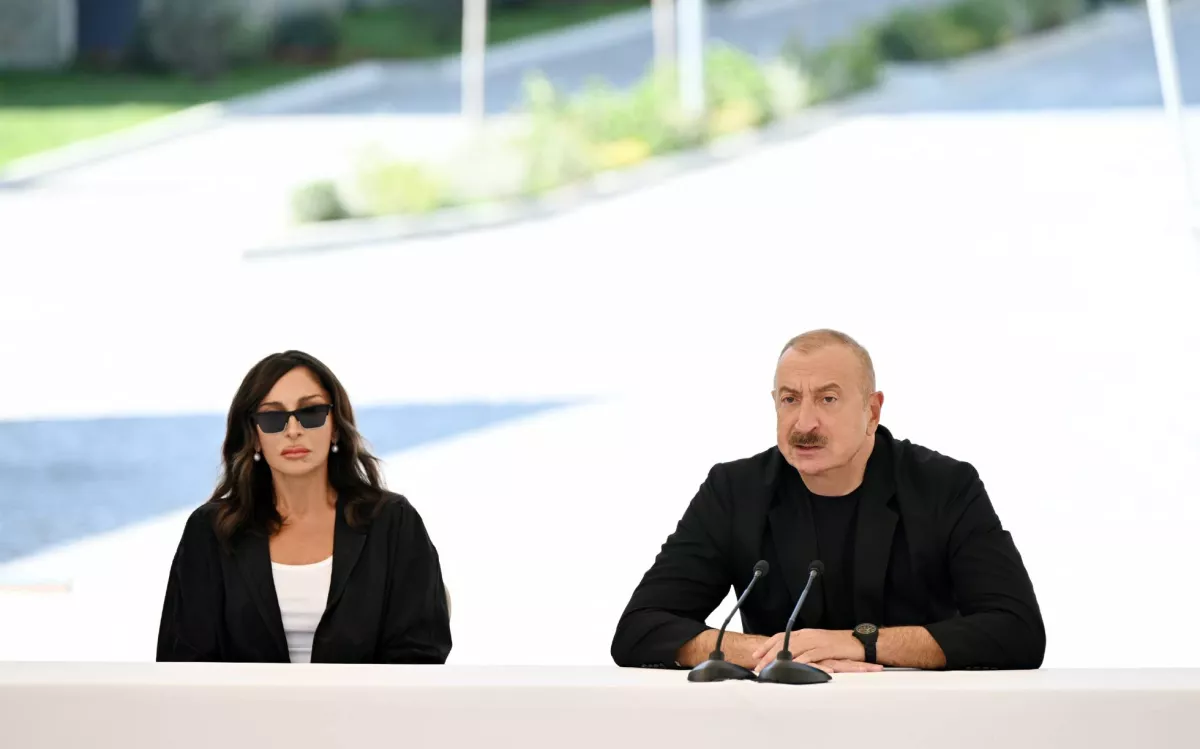
This outcome was further accelerated by another form of uniqueness—the unity between the people and the government, which created a “Fist” that, when necessary, could take on an iron grip. Alongside this stood a strong spirit of patriotism. Together with the unmatched heroism of the Azerbaijani army, this made it possible to achieve an absolute victory—an achievement unmatched anywhere in the world since 1945.
President Ilham Aliyev surely chose the phrase “absolute victory” deliberately, as the victory was won not only on the battlefield but also in other areas—economics, diplomacy, culture...
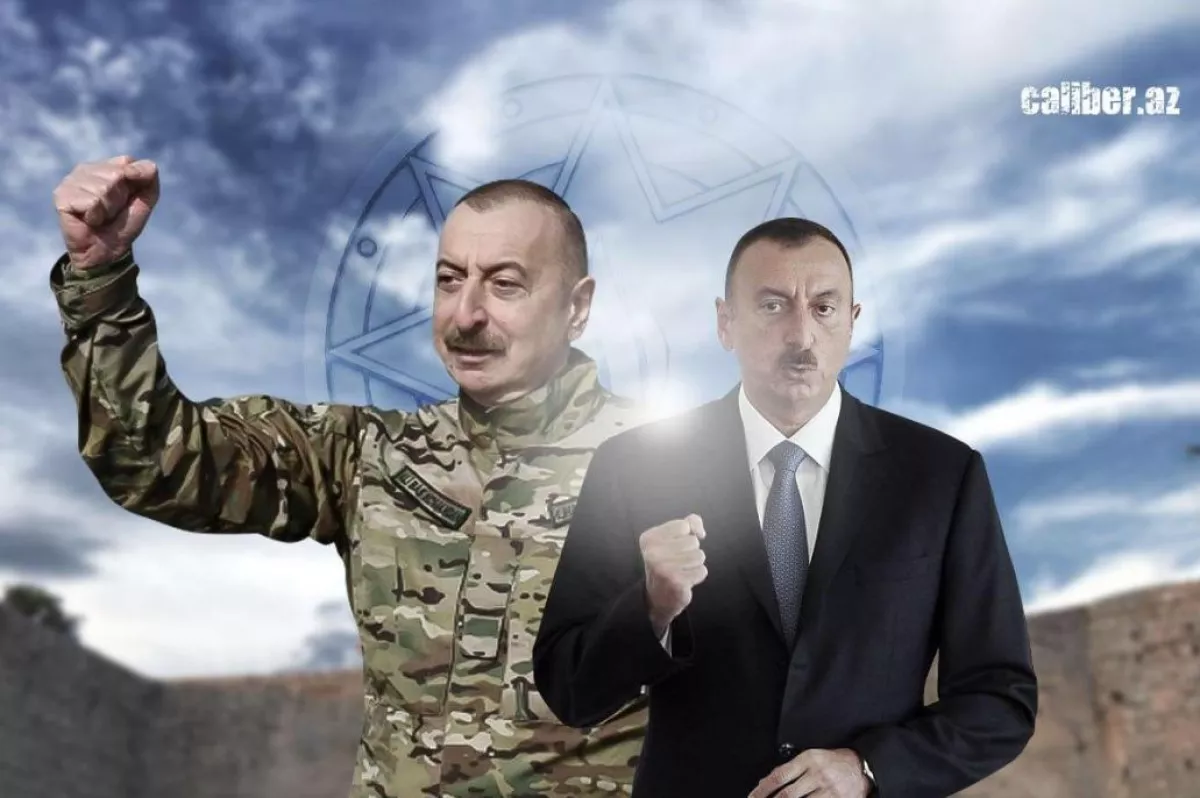
Today, the Azerbaijani people are a victorious nation, and Azerbaijan is a triumphant state. Yet the atrocities committed against it will never be erased from the nation’s memory. And although revanchist forces may occasionally raise their heads, the brilliant Armed Forces stand ever vigilant, guarding the interests and security of the country.
As always in his speeches, the head of state clearly conveyed messages to the relevant parties. We know well how thoroughly world leaders and international analysts scrutinise President Ilham Aliyev’s statements. Surely, they caught important signals in his speech, including his assertion that “We ourselves are the guarantor of our security – the government, the people and our Armed Forces.”
Yes, the Azerbaijani people are a nation of creators, as brilliantly demonstrated by the work accomplished over five years on the lands freed from occupation. Yes, the Azerbaijani people do not intend to wage war in the future. But if the country faces a threat, the Fist of Unity will take on the form familiar to all.
The events currently unfolding in the Kalbajar district—as well as recent developments across the territories liberated from occupation—clearly demonstrate the effectiveness of the foundation laid by the national leader. They also highlight how skillfully and precisely President Ilham Aliyev has built upon and continues to build on this groundwork.
On August 21, he expressed confidence that the Azerbaijani people live in peace and will continue to do so moving forward.
And one more note. Injustice and cruelty continue to grow globally. Azerbaijan’s experience—or rather, the example set by the country—carries an important message for those states and peoples striving to break free from the yoke of colonialism or seeking to restore their territorial integrity. Through the Baku Initiative Group and other channels, Azerbaijan is working to assist those who wish to achieve these goals.








